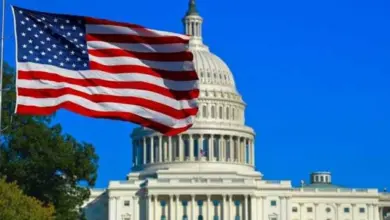Ramallah–Palestinians expect wider recognition of their statehood in the coming year and it will mean more than the mere "Facebook state" predicted by an Israeli minister, Palestinian Prime Minister Salam Fayyad said on Wednesday.
Fayyad said recognition by many countries would "enshrine" the Palestinians' right to a state in all of the West Bank and Gaza Strip, which Israel captured along with East Jerusalem in a 1967 war.
Seventeen years of peace efforts had failed to deliver this promise, he told reporters. The current Israeli coalition's stated commitment to a two-state solution could not be relied on "given the erosion that has taken place," he said.
Jewish settlement of the occupied West Bank and East Jerusalem has doubled since the interim Oslo accords of 1993. Direct peace talks revived by Washington in September after a year's suspension collapsed within weeks. A US drive to keep the process alive via third-party talks is currently in limbo.
The Palestinians reject further negotiation with Israeli Prime Minister Benjamin Netanyahu until Jewish settlement of West Bank land is frozen and Netanyahu states clearly what size and shape of state he envisages agreeing to eventually.
"It is very important for that to be defined," Fayyad said.
Brazil, Argentina, Bolivia and Ecuador announced recognition of Palestinian statehood in the past month. Chile, Mexico, Peru and Nicaragua are reported to be weighing the same move.
"These are welcome developments," Fayyad said.
He declined to comment on what countries might act and when. But he said there was a growing international consciousness that it was time for Israeli occupation to end and for the political process to deliver.
The diplomatic drive is part of Fayyad's two-year plan to establish all institutions and attributes of statehood by the middle of 2011. Analysts speculate the aim is to create momentum for a diplomatic domino effect leading to a bid for recognition at the United Nations General Assembly next September.
Netanyahu on Monday said if talks on core issues of the dispute such as borders, refugees and the status of East Jerusalem should reach a dead-end, then a long-term interim agreement might by the only viable alternative option.
Palestinian President Mahmoud Abbas, who lists going to the United Nations as one of his options should the peace process collapse, rejected this idea outright.
The late Palestinian president, Yasser Arafat, declared statehood in 1988, winning recognition from about 100 mainly Arab, communist and non-aligned states. But it had no direct impact on efforts to resolve the Middle East conflict.
Israeli media report, however, that Israel is taking the diplomatic risks seriously and has instructed its embassies globally to put the case against recognition to their host governments, warning only a negotiated settlement can hold.
But some Israelis play down the significance of recognition by distant countries not involved in Middle East peacemaking.
Deputy Foreign Minister Danny Ayalon dismissed it in advance, saying it was no more serious than clicking the "like" option on the Facebook social networking site and would yield only a "Facebook state," without sovereignty or recognized borders.
Fayyad dismissed the comment.
"Definitely, I am not looking for 'a Facebook-state', or as I call it myself a Mickey Mouse state," he said. "If it doesn't matter, why did he (Ayalon) bother to write a comment on it?
Wider recognition would amplify the Palestinian state that is now being built up daily with European Union economic and political support, Fayyad said, turning an abstract concept into a reality the world would soon acknowledge.
"I think it does matter. International recognition of our right to live as free people on territory occupied in 1967, the right to statehood…is very important."




